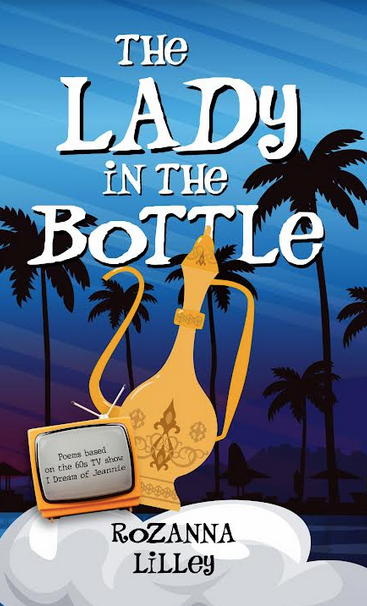 Young readers will be entertained and find the story educational. Bastian Gregory has a creative mind, describing settings in detail as well as all kinds of different creatures. I admired Pete because he represents the virtue of friendship. Even when he is concerned that he can’t solve a problem, he does everything he can to help others and never gives up.
Young readers will be entertained and find the story educational. Bastian Gregory has a creative mind, describing settings in detail as well as all kinds of different creatures. I admired Pete because he represents the virtue of friendship. Even when he is concerned that he can’t solve a problem, he does everything he can to help others and never gives up.
Author:
Great new giveaway!
_edited.png) We have a copy of Finding Sunlight by Chrissy Holm to give away!
We have a copy of Finding Sunlight by Chrissy Holm to give away!
To win, sign up for our Free Newsletter on the right-hand side of the site and enter via the newsletter. Winner will be chosen by the end of November from subscribers who enter via the newsletter. Good luck!
A review of The Lady in The Bottle by Rozanna Lilley
 Lilley is a brilliant writer. She creates pictures with words. Each episode is a short gem with sprinkles of captivating humour. Page by page we enter Jeannie’s life, we read about her travelling with the astronaut in a space capsule, a yacht or a car, we read about her trying to constantly please her master, and forever hoping to get married to him.
Lilley is a brilliant writer. She creates pictures with words. Each episode is a short gem with sprinkles of captivating humour. Page by page we enter Jeannie’s life, we read about her travelling with the astronaut in a space capsule, a yacht or a car, we read about her trying to constantly please her master, and forever hoping to get married to him.
A review of CUT by Samuel Lucas Allen
 CUT is a film that is, quite frankly, unforgettable. As a coming-of-age story, Daniel’s transition is one that well, cuts deeply while allowing the visuals and music to do most of the talking. The production is excellent, and the music, cinematography and consistently top notch acting makes for an emotive and deeply moving film which with wide appeal.
CUT is a film that is, quite frankly, unforgettable. As a coming-of-age story, Daniel’s transition is one that well, cuts deeply while allowing the visuals and music to do most of the talking. The production is excellent, and the music, cinematography and consistently top notch acting makes for an emotive and deeply moving film which with wide appeal.
A review of 2 Mini Chapbooks (Cup & Dagger series) by Sword & Kettle Press
 I was happy to expand my literary horizons through these samples from a decidedly non-mainstream speculative series. “Good things come in small packages,” goes the old saying, and there’s no shortage of humongous talent here.
I was happy to expand my literary horizons through these samples from a decidedly non-mainstream speculative series. “Good things come in small packages,” goes the old saying, and there’s no shortage of humongous talent here.
A review of Thine by Kate Partridge
 Who we are and what will happen in the future is a notion that is always evolving in her work. She explores what it is to be an individual existing among so many people and the vastness and inspiration of nature and art. And Kate Partridge questions everything, especially decisions and actions.
Who we are and what will happen in the future is a notion that is always evolving in her work. She explores what it is to be an individual existing among so many people and the vastness and inspiration of nature and art. And Kate Partridge questions everything, especially decisions and actions.
A review of Time Taken: New and Selected Works by Les Wicks
 A poetic journeyman and warrior whose work in writing and community throughout his life crisscrosses the globe. His beautiful new book Time Taken – New & Selected is a compendium of that life, full of treasures – wisdom, observations and raw evocations of the man himself.
A poetic journeyman and warrior whose work in writing and community throughout his life crisscrosses the globe. His beautiful new book Time Taken – New & Selected is a compendium of that life, full of treasures – wisdom, observations and raw evocations of the man himself.
A review of Dancing Dots by Brenda Eldridge
 There are poems in this collection that describes events which many of us experience like waking at 3.00 am and being unable to go back to sleep, or being super tired after looking after children or admiring a fancy car that we never could afford. Empathy, love, compassion and wishes are also themes in this collection.
There are poems in this collection that describes events which many of us experience like waking at 3.00 am and being unable to go back to sleep, or being super tired after looking after children or admiring a fancy car that we never could afford. Empathy, love, compassion and wishes are also themes in this collection.
Great new giveaway!
 We have 5 digital audiobooks of “Are You a N****r or a Doctor?”: A Memoir by Otto E. Stallworth Jr. M.D. M.B.A. to give away!
We have 5 digital audiobooks of “Are You a N****r or a Doctor?”: A Memoir by Otto E. Stallworth Jr. M.D. M.B.A. to give away!
To win, sign up for our Free Newsletter on the right-hand side of the site and enter via the newsletter. Winner will be chosen by the end of October from subscribers who enter via the newsletter. Good luck!
A review of The Hurricane Book by Claudia Acevedo-Quiñones
 Acevedo-Quiñones includes family trees and freely admits that some of her facts are speculation, sometimes pieced together from “drunken spill sessions,” hearsay, half-remembered conversations. “Secrets are our family members, too,” after all, as she wisely points out in the vignette, “Secreto.”
Acevedo-Quiñones includes family trees and freely admits that some of her facts are speculation, sometimes pieced together from “drunken spill sessions,” hearsay, half-remembered conversations. “Secrets are our family members, too,” after all, as she wisely points out in the vignette, “Secreto.”